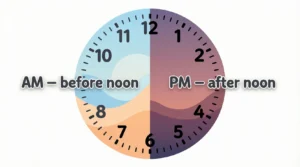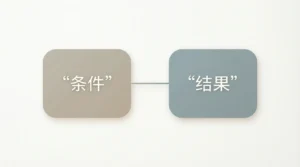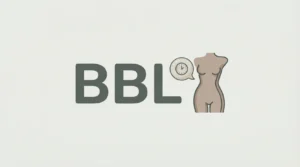Negative feedback from a boss can be challenging, but how you respond makes all the difference. A well-crafted reply can show professionalism, emotional intelligence, and your willingness to grow. Whether the feedback is constructive or seems overly critical, staying calm and responding thoughtfully will leave a lasting impression.
“Master the art of responding to criticism with grace! Discover thoughtful replies to handle your boss’s negative feedback while maintaining professionalism and growth.”
Below, you’ll find 48 practical and professional responses to handle different scenarios of receiving negative feedback. Each one includes an example reply, the situation it applies to, and the potential impact of your response.
1. Acknowledging Valid Feedback
- Scenario: Your boss points out a legitimate mistake in your work.
- Reply: “Thank you for pointing that out. I’ll make sure to double-check my work moving forward to avoid this.”
- Impact: Shows accountability and a proactive attitude.
2. Clarifying the Issue
- Scenario: You’re unsure about the specifics of the feedback.
- Reply: “I understand you have concerns about my work. Could you help me understand where I went wrong?”
- Impact: Demonstrates your willingness to learn and avoid repeating mistakes.
3. Acknowledging and Offering a Solution
- Scenario: Your boss criticizes your approach to a task.
- Reply: “I see where I could have taken a different approach. Moving forward, I’ll implement [specific change] to ensure better results.”
- Impact: Highlights your problem-solving skills and adaptability.
4. Remaining Calm Under Harsh Criticism
- Scenario: Your boss delivers feedback in an overly harsh tone.
- Reply: “I appreciate your honesty, and I’ll work on improving this area. Thank you for letting me know.”
- Impact: Shows emotional maturity and professionalism under pressure.
5. Requesting Examples
- Scenario: The feedback feels vague or unclear.
- Reply: “I’d like to fully understand how I can improve. Could you share some specific examples of where I fell short?”
- Impact: Demonstrates your commitment to improvement and seeking clarity.
6. Acknowledging Miscommunication
- Scenario: Feedback is based on a misunderstanding.
- Reply: “I see how that might have seemed unclear. Here’s what I intended to do, but I can adjust if needed.”
- Impact: Resolves the misunderstanding professionally without becoming defensive.
7. Taking Responsibility Without Over-Apologizing
- Scenario: You made a mistake but don’t want to overdo your apology.
- Reply: “You’re right, I missed that detail. I’ll make sure it doesn’t happen again.”
- Impact: Accepts responsibility without diminishing your confidence.
8. Asking for Guidance
- Scenario: You want to improve but need more direction.
- Reply: “I’d appreciate any suggestions you have for how I can approach this differently in the future.”
- Impact: Shows humility and a desire to learn.
9. Responding to Feedback on Communication Skills
- Scenario: Your boss says your communication style needs improvement.
- Reply: “Thank you for the feedback. I’ll work on being more clear and concise in my future updates.”
- Impact: Indicates your openness to adjusting your communication style.
10. Avoiding Defensiveness
- Scenario: You feel the criticism is unfair but want to remain professional.
- Reply: “Thank you for sharing your perspective. I’ll reflect on it and make adjustments where necessary.”
- Impact: Maintains professionalism while avoiding conflict.
11. Addressing Criticism of Leadership Skills
- Scenario: Your boss says your leadership style isn’t effective.
- Reply: “I appreciate the feedback. What adjustments do you think would make the biggest impact on my leadership?”
- Impact: Demonstrates a growth mindset and openness to improvement.
12. Asking for a Follow-Up Discussion
- Scenario: The feedback conversation feels rushed.
- Reply: “Could we schedule a time to discuss this in more detail? I’d like to ensure I fully address your concerns.”
- Impact: Shows your commitment to resolving the issue thoroughly.
13. Handling Feedback on Punctuality
- Scenario: Your boss mentions your tardiness.
- Reply: “You’re right; I need to improve my punctuality. I’ll make it a priority moving forward.”
- Impact: Acknowledges the issue and commits to a change.
14. Showing Gratitude for Constructive Feedback
- Scenario: The feedback is helpful and constructive.
- Reply: “Thank you for bringing this to my attention. I’ll use this feedback to improve my performance.”
- Impact: Reinforces your professionalism and receptiveness.
15. Responding to Feedback on Teamwork
- Scenario: Your boss says you need to collaborate better with your team.
- Reply: “I understand how important teamwork is. I’ll make a conscious effort to communicate more effectively and involve others moving forward.”
- Impact: Shows you value teamwork and are willing to adapt.
16. Addressing Criticism of Your Attitude
- Scenario: Your boss mentions your attitude has been negative.
- Reply: “Thank you for bringing that to my attention. I’ll reflect on my behavior and work on maintaining a more positive mindset.”
- Impact: Acknowledges the feedback while showing emotional awareness.
17. Accepting Feedback on Time Management
- Scenario: Your boss says you need to manage your time better.
- Reply: “You’re right, I need to improve my time management. I’ll review my schedule and prioritize tasks more effectively.”
- Impact: Shows accountability and an improvement plan.
18. Asking for Constructive Criticism
- Scenario: The feedback is harsh but not constructive.
- Reply: “I appreciate the feedback. Could you suggest specific ways I can address these concerns?”
- Impact: Encourages a more constructive conversation while staying professional.
19. Responding to Feedback About Attention to Detail
- Scenario: Your boss says you missed key details in your work.
- Reply: “Thank you for pointing that out. I’ll pay closer attention to details in the future to ensure accuracy.”
- Impact: Demonstrates your willingness to address the issue directly.
20. Handling Feedback About Initiative
- Scenario: Your boss says you need to take more initiative.
- Reply: “I understand the importance of being proactive. I’ll look for more opportunities to contribute and take the lead where appropriate.”
- Impact: Positions you as someone eager to grow and step up.
21. Staying Calm When Feedback Feels Unfair
- Scenario: You believe the feedback is unjustified.
- Reply: “I appreciate your perspective. Could we review the situation together to ensure I understand fully?”
- Impact: Maintains professionalism while seeking clarity without being defensive.
22. Responding to Feedback on Meeting Deadlines
- Scenario: Your boss points out delays in your work.
- Reply: “You’re right, I missed that deadline. I’ll make sure to set more realistic timelines and communicate if any delays are moving forward.”
- Impact: Acknowledges the issue while committing to better planning.
23. Handling Feedback About Presentation Skills
- Scenario: Your boss says your presentations lack impact.
- Reply: “Thank you for the feedback. I’ll work on improving my delivery and adding more engaging elements to my presentations.”
- Impact: Shows your commitment to improving key skills.
24. Responding to Feedback About Handling Pressure
- Scenario: Your boss says you don’t handle pressure well.
- Reply: “I understand. I’ll focus on improving my stress management and staying composed in high-pressure situations.”
- Impact: Positions you as someone willing to grow under challenging conditions.
25. Acknowledging Feedback on Customer Interactions
- Scenario: Your boss says you need to improve your customer service skills.
- Reply: “Thank you for the feedback. I’ll work on being more attentive to customer needs and providing better support.”
- Impact: Shows you take customer satisfaction seriously.
26. Responding to Feedback on Strategic Thinking
- Scenario: Your boss says your approach to problem-solving needs work.
- Reply: “I appreciate your input. I’ll focus on developing more strategic solutions to challenges in the future.”
- Impact: Demonstrates a willingness to refine critical thinking skills.
27. Addressing Feedback About Conflict Resolution
- Scenario: Your boss says you could handle conflicts better.
- Reply: “I see how I could have managed that situation differently. I’ll work on improving my conflict resolution skills moving forward.”
- Impact: Highlights emotional intelligence and your ability to learn from experience.
28. Asking for Training Opportunities
- Scenario: Your boss highlights a skill gap.
- Reply: “I appreciate the feedback. Are there any resources or training opportunities you’d recommend to help me improve in this area?”
- Impact: Shows initiative and a desire for growth.
29. Handling Feedback About Work Quality
- Scenario: Your boss says the quality of your work needs improvement.
- Reply: “Thank you for the honest feedback. I’ll focus on improving the quality and ensuring my work meets expectations.”
- Impact: Demonstrates accountability and commitment to excellence.
30. Seeking a Follow-Up After Implementing Changes
- Scenario: You’ve made adjustments based on previous feedback.
- Reply: “I’ve implemented the changes we discussed. Could we review my progress to ensure I’m on the right track?”
- Impact: Shows your dedication to continuous improvement and openness to additional input.
31. Responding to Feedback About Prioritization
- Scenario: Your boss says you need to prioritize tasks better.
- Reply: “I understand. I’ll work on organizing my tasks more effectively to meet deadlines and priorities.”
- Impact: Positions you as someone taking responsibility for time management.
32. Handling Feedback About Creativity
- Scenario: Your boss says your ideas need to be more innovative.
- Reply: “Thank you for the feedback. I’ll challenge myself to think outside the box and bring more creative solutions to the table.”
- Impact: Shows your commitment to thinking more creatively.
33. Requesting Feedback on Progress
- Scenario: You’re unsure if you’ve improved since previous feedback.
- Reply: “I’ve been working on the areas you mentioned earlier. Could you let me know if you’ve noticed any improvements?”
- Impact: Demonstrates your dedication to personal growth.
34. Responding to Feedback About Delegation Skills
- Scenario: Your boss says you need to delegate tasks more effectively.
- Reply: “Thank you for pointing that out. I’ll focus on identifying tasks I can delegate and ensuring the right people are involved.”
- Impact: Shows you’re open to improving leadership and team management.
35. Handling Feedback on Listening Skills
- Scenario: Your boss mentions that you don’t actively listen during discussions.
- Reply: “I appreciate the feedback. I’ll work on being more attentive and ensuring I fully understand before responding.”
- Impact: Highlights your self-awareness and commitment to effective communication.
36. Accepting Feedback About Adaptability
- Scenario: Your boss says you struggle to adapt to changes.
- Reply: “I see where I could have been more flexible. I’ll work on embracing changes and adjusting quickly to new circumstances.”
- Impact: Shows your readiness to evolve with changing situations.
37. Acknowledging Feedback About Overconfidence
- Scenario: Your boss mentions that you come across as overconfident.
- Reply: “Thank you for the feedback. I’ll be mindful of my approach and ensure it aligns with team dynamics.”
- Impact: Demonstrates humility and your willingness to adjust your attitude.
38. Handling Feedback About Multitasking
- Scenario: Your boss says multitasking is affecting your work quality.
- Reply: “I understand. I’ll focus on prioritizing tasks and ensuring each gets the attention it deserves.”
- Impact: Reinforces your commitment to delivering quality results.
39. Responding to Feedback on Proactive Communication
- Scenario: Your boss says you don’t provide updates often enough.
- Reply: “I see how regular updates are important. I’ll make it a point to keep you informed on progress more frequently.”
- Impact: Shows your effort to maintain open and proactive communication.
40. Acknowledging Feedback on Confidence in Decisions
- Scenario: Your boss says you need to be more decisive.
- Reply: “Thank you for pointing that out. I’ll work on being more confident and assertive when making decisions.”
- Impact: Demonstrates your awareness of leadership qualities and willingness to develop them.
41. Handling Feedback About Technical Skills
- Scenario: Your boss says you need to improve in a specific technical area.
- Reply: “Thank you for the feedback. I’ll invest time in learning and enhancing my skills in this area.”
- Impact: Shows your dedication to building expertise.
42. Asking for Feedback on Future Improvements
- Scenario: You want to improve based on feedback but need more input.
- Reply: “I appreciate your insights. Are there any additional areas you think I should focus on improving?”
- Impact: Positions you as someone eager to grow and exceed expectations.
43. Responding to Feedback About Personal Branding
- Scenario: Your boss mentions that your professional image needs improvement.
- Reply: “Thank you for pointing that out. I’ll work on aligning my image with the expectations of the role.”
- Impact: Shows self-awareness and your ability to handle feedback about perception.
44. Handling Feedback About Following Up on Tasks
- Scenario: Your boss says you don’t follow up on tasks as expected.
- Reply: “I understand how important follow-ups are. I’ll ensure I stay on top of updates and deadlines moving forward.”
- Impact: Demonstrates accountability and readiness to improve.
45. Accepting Feedback About Professional Boundaries
- Scenario: Your boss mentions you need to maintain clearer boundaries at work.
- Reply: “Thank you for the reminder. I’ll be more mindful of maintaining professionalism in all interactions.”
- Impact: Shows your ability to handle sensitive feedback gracefully.
46. Acknowledging Feedback on Empathy
- Scenario: Your boss says you need to show more empathy toward colleagues.
- Reply: “I see how that could make a difference. I’ll work on being more understanding and supportive in team interactions.”
- Impact: Reinforces your emotional intelligence and team-oriented mindset.
47. Handling Feedback About Personal Accountability
- Scenario: Your boss says you tend to shift blame instead of taking responsibility.
- Reply: “Thank you for your honesty. I’ll make it a priority to take full accountability for my actions moving forward.”
- Impact: Shows self-awareness and maturity.
48. Ending a Feedback Conversation Positively
- Scenario: The feedback session is ending, and you want to leave a good impression.
- Reply: “Thank you for taking the time to share your thoughts. I’ll work on these areas and keep you updated on my progress.”
- Impact: Leaves the conversation on a positive, forward-looking note.
FAQs
Why is it important to respond professionally to negative feedback?
Responding professionally shows emotional maturity, helps maintain a positive relationship with your boss, and can turn criticism into an opportunity for growth.
What should I do if the feedback feels unfair?
Stay calm, listen fully, and ask clarifying questions to understand your boss’s perspective before explaining your side politely.
How can I stay confident while receiving negative feedback?
Focus on the feedback as a tool for improvement and remind yourself of your strengths and past achievements.
What are some examples of professional responses to criticism?
Phrases like “Thank you for the feedback; I’ll work on it,” or “I appreciate your input; can you provide specific suggestions?” work well.
How can I avoid getting defensive during negative feedback?
Practice active listening, take a moment to process, and focus on understanding the message rather than reacting emotionally.
Should I ask questions after receiving feedback?
Yes, asking questions like “Could you clarify what you’d like to see instead?” shows your willingness to improve.
How can I use negative feedback for self-improvement?
Break the feedback into actionable steps, set goals to improve, and track your progress over time.
What should I do if I disagree with the feedback?
Express your perspective respectfully by saying, “I see it differently. Can I share my view?” and aim for a constructive discussion.
How can I maintain a positive relationship with my boss after negative feedback?
Thank them for their honesty, show initiative in improving, and seek follow-ups to demonstrate progress.
What is the long-term benefit of handling negative feedback professionally?
It enhances your reputation, builds resilience, and positions you as a proactive and adaptable employee.

Welcome to ReplyResponses.com, your go-to hub for quick, witty, and meaningful replies! Whether you’re looking for clever comebacks, thoughtful answers, or just some fun conversation starters, we’ve got you covered. Our platform makes responding easier, smarter, and way more enjoyable, helping you connect, engage, and impress effortlessly.












